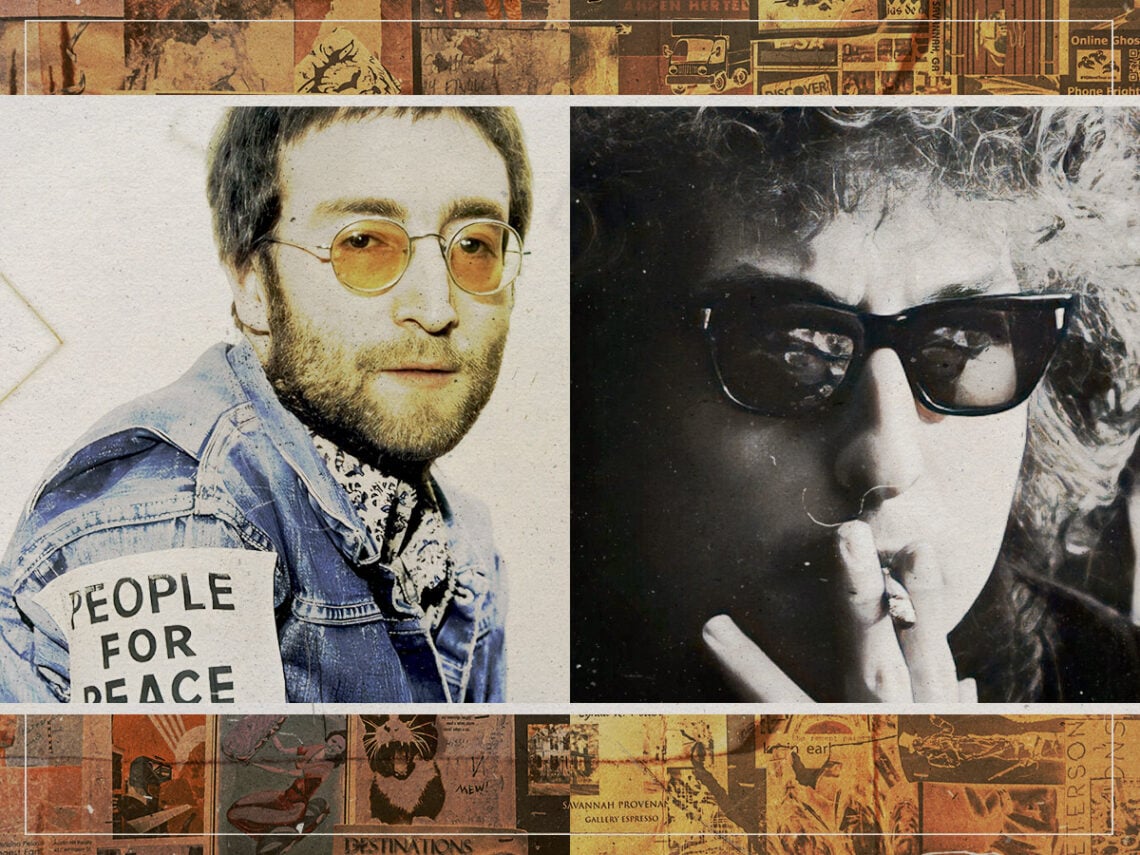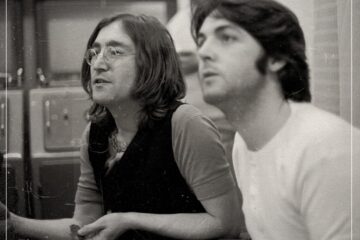We think we live in revolutionary times, but the times have been a-changing at a rate of knots for many moons. There was effectively only 17 years between the very first seven-inch rock ‘n’ roll release, and the sonic odyssey of ‘I Am The Walrus’. That’s a sign not only of a rampant cultural revolution powered by profound technological advancements, but also radical proponents like the legendary John Lennon.
However, in the legacy of Lennon’s work, radicalism somewhat overshadows the poetic depth behind it. His status as an innovator goes unquestioned, but perhaps because of relatively straightforward hits like ‘Imagine’, he’s not always noted as a lyrical behemoth. The lore of songwriting, as David Bowie stated it, is that “it was Bob Dylan who brought a new kind of intelligence to pop”. And thereafter, the likes of Lennon simply took a leaf out of his book.
However, while even Lennon himself recognised that he “copied” Dylan, that should not undermine the advancements the ‘Smart One’ made when he got a little more serious with his craft. In this regard, Dylan feels as though the Beatles legend was “overlooked”.
When he was asked to look back on what he liked about the Fab Four retrospectively by Playboy, Dylan explained: “I’ve always liked the way George Harrison plays guitar-restrained and good. As for Lennon, well, I was encouraged by his book [In His Own Write]. Or the publishers were encouraged, because they asked me to write a book and that’s how Tarantula came about.”
Tarantula was Dylan’s own experimental prose-poetry collection, which he had written between 1964 and 1965, but it was only published in 1971, after the success of Lennon’s efforts. Alas, for Dylan, that proved to be a minor influence in comparison to his songwriting. “John has taken poetics pretty far in popular music. A lot of his work is overlooked,” he continued, “but if you examine it, you’ll find key expressions that have never been said before to push across his point of view. Things that are symbolic of some inner reality and probably will never be said again.”
Indeed, there is a revolutionary vitality to Lennon’s words on many occasions. Few artists have been able to temper such complex expressions into refined, catchy simplicity in a manner that comes close to matching Lennon. He was always doing this with a distinct sense of steeled purpose, as he put it: “How can you beat Shakespeare or Beethoven or whatever? I go through all that, and, in my secret heart, I wanted to write something that would take over, ‘We Shall Overcome’.”
This sense of making profundity easily palatable is something Bowie firmly supported when he said: “I felt such kin to him as much as he would rifle the avant-garde and look for ideas that were so on the outside on the periphery of what was the mainstream and then make them apply in a functional manner to something that was considered populist and make it work.”
So, while Lennon certainly learnt a lot from Dylan, perhaps there wouldn’t be a ‘Jokerman’ without Dylan learning from Lennon in turn.



